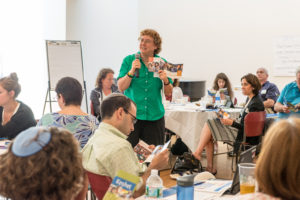This summer, Jewish camp has been put to the ultimate test. But, with resilience, determination, and collaboration, the camp community has navigated through the immediate challenges imposed by COVID-19. Foundation for Jewish Camp (FJC) has helped lead efforts to sustain and strengthen camps through the pandemic, pilot meaningful virtual engagement opportunities, and foster innovative efforts to ensure camp remains an essential asset to the Jewish community for years to come.
In light of the vast majority of camps not being able to open this summer, FJC served as the valued central resource and advocate for Jewish camps at this unique and pivotal moment. Working together with the field, FJC has provided updated data, insights, and leadership to successfully mitigate the financial gap and keep camp as a top priority on the Jewish communal philanthropic agenda.
FJC recognized that camps needed support in new and creative ways during summer 2020.
This will be our “summer of learning” during which camps will pilot a range of virtual engagement approaches to reach their current communities – campers, families, staff, and alumni – and even broader audiences. Together, we will help camp truly become a year-round, lifelong experience. – Jeremy J. Fingerman, CEO of Foundation for Jewish Camp
In partnership with Mosaic United, FJC has launched Jewish Camp @ Home’s Jewish Experience Shuk – a centralized marketplace offering camps access to the best virtual programming and Jewish educational resources from across North America and Israel.
To help energize the field and foster collaboration, FJC has introduced its new Innovation Challenge, in which camps form teams, attend virtual workshops, and design creative engagement programs with a chance to receive up to $10,000 to pilot their creation.
And, camp staff and alumni, who feel the loss of summer camp as well, can learn, build their network, stay connected, and make a difference through FJC’s new Virtual Staff Lounge.
To learn more, visit jewishcamp.org. To read more about FJC’s efforts to innovate this summer, click here.
The Jim Joseph Foundation is a supporter of FJC.
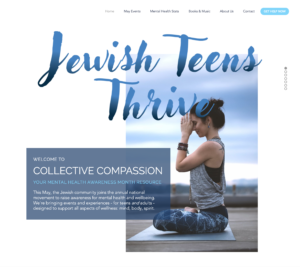
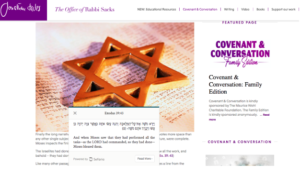
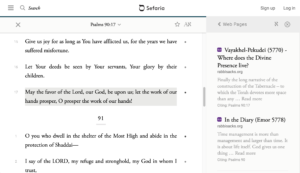
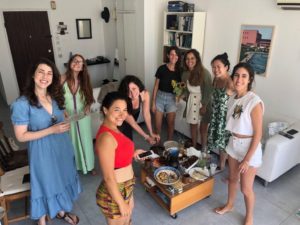 The hundreds of Well Circles—monthly gatherings around the new moon and Hebrew month—each include about ten women with a shared mission, shared responsibility and a sacred sense of belonging. By creating space that blends biblical, talmudic, midrashic and modern texts, prayers, and rituals, Well Circles cultivate meaningful experiences and connections for participants. Importantly, every woman has a chance to lead their Well Circle as a confident host, using At The Well’s resources to facilitate discussion and activities about themes in each Hebrew month. This leadership role allows women in each Circle to not only grow more connected to their Jewish spirituality, but also to become stronger as Jewish leaders within their communities.
The hundreds of Well Circles—monthly gatherings around the new moon and Hebrew month—each include about ten women with a shared mission, shared responsibility and a sacred sense of belonging. By creating space that blends biblical, talmudic, midrashic and modern texts, prayers, and rituals, Well Circles cultivate meaningful experiences and connections for participants. Importantly, every woman has a chance to lead their Well Circle as a confident host, using At The Well’s resources to facilitate discussion and activities about themes in each Hebrew month. This leadership role allows women in each Circle to not only grow more connected to their Jewish spirituality, but also to become stronger as Jewish leaders within their communities.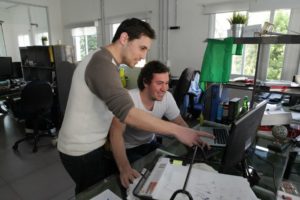 Israel’s vibrant economy, thriving technology and innovation sectors, and multi-cultural landscape make it an ideal place for college-age students looking to have a resume-enhancing experience that builds life-skills and can help them when they enter the workforce. Because they are immersed in the Israeli workplace and society—they are placed in housing and have opportunities to tour the country—participants return home with greater knowledge, sense of connection, and engagement in Jewish life and Israel. Evaluations of participants before and after the program show that they increase their knowledge about diversity and variety in Israeli life, society, and politics; their sense of responsibility and connection to Israelis and the Jewish people; the ability to explain to others why being Jewish and engaging with Israel are important; and knowledge of Judaism, Jewish communities, and the diversity of approaches to Judaism.
Israel’s vibrant economy, thriving technology and innovation sectors, and multi-cultural landscape make it an ideal place for college-age students looking to have a resume-enhancing experience that builds life-skills and can help them when they enter the workforce. Because they are immersed in the Israeli workplace and society—they are placed in housing and have opportunities to tour the country—participants return home with greater knowledge, sense of connection, and engagement in Jewish life and Israel. Evaluations of participants before and after the program show that they increase their knowledge about diversity and variety in Israeli life, society, and politics; their sense of responsibility and connection to Israelis and the Jewish people; the ability to explain to others why being Jewish and engaging with Israel are important; and knowledge of Judaism, Jewish communities, and the diversity of approaches to Judaism.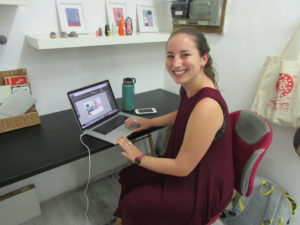
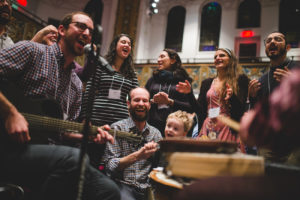 people with varying levels of knowledge, passions, and visions for future Jewish life. Hadar’s
people with varying levels of knowledge, passions, and visions for future Jewish life. Hadar’s 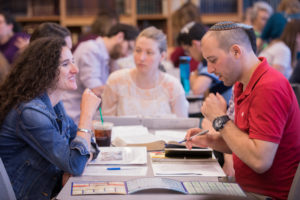 Hadar’s timely resources include a new
Hadar’s timely resources include a new 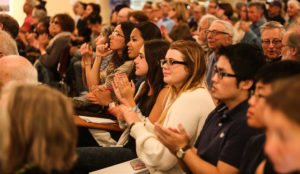 In recent years, the Institute hosted the annual meeting of the Association for Israel Studies, brought Israeli Supreme Court Justice Daphne Barak-Erez as The Rosalinde and Arthur Gilbert Foundation Scholar-in-Residence, sponsored courses ranging from Israeli Constitutional Law to Religion in Israel, and hosted up to five stellar visiting professors per year to teach and mentor in their areas of expertise.
In recent years, the Institute hosted the annual meeting of the Association for Israel Studies, brought Israeli Supreme Court Justice Daphne Barak-Erez as The Rosalinde and Arthur Gilbert Foundation Scholar-in-Residence, sponsored courses ranging from Israeli Constitutional Law to Religion in Israel, and hosted up to five stellar visiting professors per year to teach and mentor in their areas of expertise.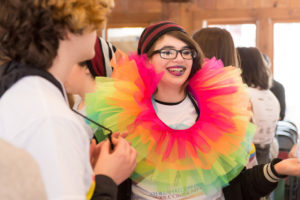 Last year, Keshet expanded the Shabbatonim to include the South and Midwest, in addition to those held in the East and West Coasts, so more queer Jewish teens have the space to be their full selves. All of this is in addition to Keshet’s year-round work engaging queer Jewish teens through programs, conferences, and workshops, and through training more than 1,500 youth professional who work with teens.
Last year, Keshet expanded the Shabbatonim to include the South and Midwest, in addition to those held in the East and West Coasts, so more queer Jewish teens have the space to be their full selves. All of this is in addition to Keshet’s year-round work engaging queer Jewish teens through programs, conferences, and workshops, and through training more than 1,500 youth professional who work with teens.